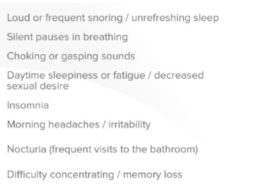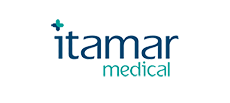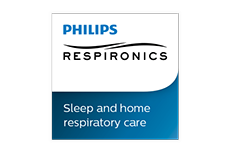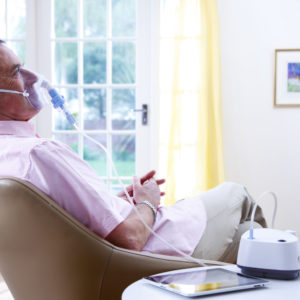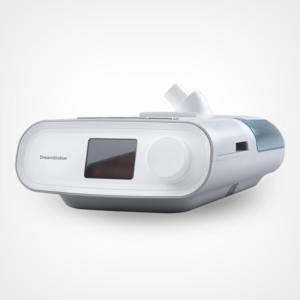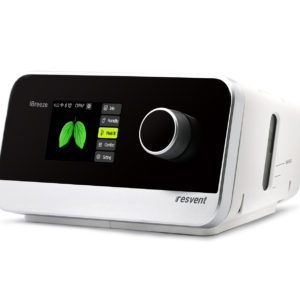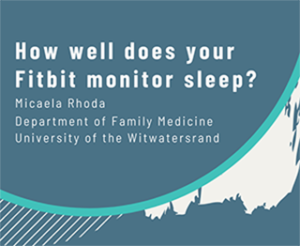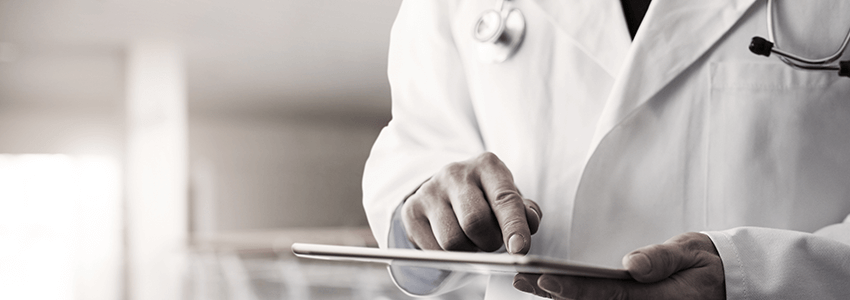
Obstructive sleep apnea & the cardiovascular system with Dr. Alison Bentley – Featured on Philips Med-Talk
In This Video we have Dr. Bentley speaking about sleep apnea and sleep disorders and how to identify them. More specifically Dr. Bentley has called this presentation: Snoring could be bad for your cardiovascular health. View this video now and stay informed on Sleep apnea, sleep disorders and how it can affect your cardiovascular health if not treated.
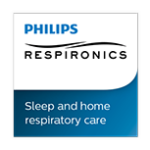 Sponsored by Phillips
Sponsored by Phillips
Obstructive Sleep Apnea Diagnosis and Treatment for Your Patients
AIRO Health Care can assist you in diagnosing and managing your patients with obstructive sleep apnea (OSA) and other sleep disorders through provision of needed test equipment.
OSA is a medical problem linked to severe snoring and an obstruction on inspiration in the pharynx during sleep. When the obstruction occurs there is an awakening from sleep associated with a sudden increase in blood pressure and pulse rate leading to the major consequences of OSA viz tiredness during the day and an increased risk of cardiovascular events.
There are clear symptoms of sleep apnea, which are best summarised in this STOP BANG questionnaire.
If a female patient scores 4 or over, or a male scores 5 or over, they may be at risk of having sleep apnea.
The only way to accurately diagnose the severity of the sleep apnea is with an overnight test.
There are two types of sleep tests available:
- The traditional full overnight polysomnography. The test includes EEG recordings, respiratory channels for OSA and leg electrodes to record leg movements for a diagnosis of Periodic limb movement disorder (PLMD). This test, due to the increased number of channels, is the most expensive type of overnight sleep test.
- An overnight apnea screening test. This test is cheaper, easier to administer and mostly done at home as fewer channels are recorded. The WatchPAT device that is used records cardiovascular parameters from which apneas and other respiratory events are derived. The accuracy of the WatchPAT for apnea index calculation has been validated in peer reviewed studies and recognised by the FDA. Basic sleep stage data, which have been shown to be as accurate as overnight polysomnography, are also derived. Thus a fairly complete analysis of overnight apnea, snoring, body position, oxygen saturation and sleep stages will be obtained.
Which Sleep Apnea test is the most suitable for your patient?
If you are simply wanting to know the severity the level of apnea, and your patient tends to sleep well, then an apnea screening test would be most suitable – both for cost and practicality.
If you are concerned about PLMD, narcolepsy or other organic sleep disorders, or if your patient has already had a negative apnea screen, despite significant daytime sleepiness, then a full overnight polysomnogram would be best, to give the most accurate diagnosis.
If your patients have been diagnosed with significant OSA, but still have daytime sleepiness after adequate treatment with nasal CPAP – they should also get assessed for a possible additional sleep disorder.
How does the sleep testing work?
The practice of Dr. Alison Bentley is responsible for the sleep testing and reporting for AIRO Integrated Health Care.
If you would like to send a patient for testing, please download the STOP BANG questionnaire.
Simply fill in the form and contact us or your preferred sleep specialist. We will forward to a sleep specialist to support you. The sleep specialist will arrange medical aid authorisation, contact the patient and arrange to get the test done.
Typically results will be sent through to you within 48 hours of the sleep test being completed. In the case of in-hospital patients, a message will be sent to you as soon as the study is downloaded with the basic AHI and ODI data, so that CPAP titration and treatment can be done the next night if required.
While CPAP treatment may be recommended for patients with moderate to severe OSA (AHI of 20 upwards) the treatment for your patient remains your decision.
Dr Alison Bentley on (064) 1661710 uses both Itamar and Philips-Respironics sleep testing equipment and can be contacted on alison.bentley@drbentleyinc.com
Would you like more information about our sleep tests for your patients? Fill in the form below to contact us:
FAQs
Typically your sleep specialist will have a test referral form. You can indicate on the test request form that should the AHI be greater than 20 per hour you would like us to continue with a titration and CPAP therapy. The sleep specialist will then arrange for a CPAP titration to be performed and send all information back to you.
The sleep specialist can recommend a supplier to the patient to get a machine and mask for ongoing treatment. AIRO, as a supplier of Philips-Respironics - a global leader, has various options for payment including Medical Aid claims, cash payments or rental. This is particularly useful for patient in-hospital as there will be no delay in getting patients onto treatment.
Compliance is automatically monitored after the first week. It is then recommended after the first month and then 3 monthly. Please indicate on the sleep specialist form requesting CPAP therapy, how often you would like to receive compliance data or you can request information on compliance as you need.
Please contact Dr Alison Bentley on (064) 1661710 or alison.bentley@drbentleyinc.com who is a sleep specialist responsible for running sleep diagnostic services. If you require support from AIRO for CPAP and masks please contact Mr JJ van Dongen on (011) 4630361 at jjvandongen@airohealthcare.com alternately admin@airohealthcare.com


